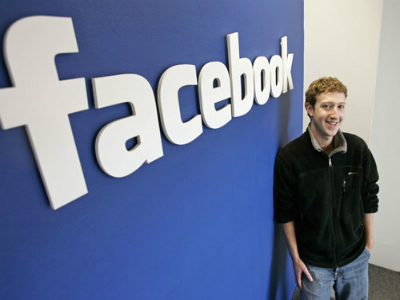Report: Facebook Wants to Become an E-Money Institution
Facebook may become a PayPal rival.
Sources told the Financial Times that Facebook is requesting authorization from Ireland's central bank to become an e-money institution. Facebook is only "weeks away," sources have said, from allowing its members to store money on Facebook and use those funds to make payments and exchange money with other members.
According to the report, Facebook has also talked about potential partnerships with at least three London start-ups. These businesses offer international money transfer services online and through smartphones, including TransferWise, Moni Technologies and Azimo. Sources report that Facebook actually paid Azimo $10 million to recruit one of its cofounders as a director of business development.
One source told The Financial Times that "Facebook wants to become a utility in the developing world, and remittances are a gateway drug to financial inclusion." However, the paper points out that Facebook users may not trust the company enough to handle their money, afraid that it's just one more piece of information Facebook can use to boost advertising.
The move to become an e-money institution is a strategic shift for the company, which makes most of its revenue from ads. The news also isn't surprising given that other Internet groups, including Tencent and Alibaba, are racing to turn themselves into mobile payment platforms. Sources claim that Facebook's money transfer project is led by Sean Ryan, the company's vice-president of platform partnerships.
Here in the United States, Facebook is already authorized to process payments for developers who charge for in-app purchases such as Candy Crush Saga. Facebook charges up to 30 percent for each payment, which account for around 10 percent of its revenue. The company facilitated $2.1 billion worth of transactions, most of which stemmed from games, during 2013, according to documents filed with the SEC.
Should Facebook become a PayPal competitor? Given the amount of time users spend on the social network, it makes sense for Facebook to take the PayPal route. Then again, can Facebook be trusted with your money?
Get Tom's Hardware's best news and in-depth reviews, straight to your inbox.

Kevin Parrish has over a decade of experience as a writer, editor, and product tester. His work focused on computer hardware, networking equipment, smartphones, tablets, gaming consoles, and other internet-connected devices. His work has appeared in Tom's Hardware, Tom's Guide, Maximum PC, Digital Trends, Android Authority, How-To Geek, Lifewire, and others.
-
antilycus lets see a company that was founded on being free, then took it's user's info and sold it for hundreds of millions of dollars. Has publicly said they believe nothing should be private and now they want to hold our money? no thanks. I'll stick with BCsReply -
gwwerner I definitely wouldn't use facebook as a bank account. Being able to use facebook to pay back friends and family when I owe them small amounts would be useful, though. As it is, I only keep cash around to pay people back for tickets they have bought, or if I am contributing to a gift for someone. If I could use facebook to transfer the money, I wouldn't have to keep cash around at all. If have used paypal for this a few times, but many people don't have a paypal account, or if they do, they have never used it to send money to someone they know.Reply -
Rhinofart I'd rather have my balls pounded flat with a wooden hammer than have Farcebook deal with my money.Reply -
cats_Paw Facebook: First we took your data, now we will take your money :D.Reply
I do have to say their bussiness plan is brilliant.
From the 1.5 billion users they have, even if 1% of them actually use this feature, its like hitting gold.
And expect friends you havent heard from for years start to pop up, asking if you got 10 bucks for a pizza or something....
Im quite sure some famous people might get some income thx to this as well...
Dont know how this will go, but im sure as hell gonna be having some fun watching it all from a distance.
